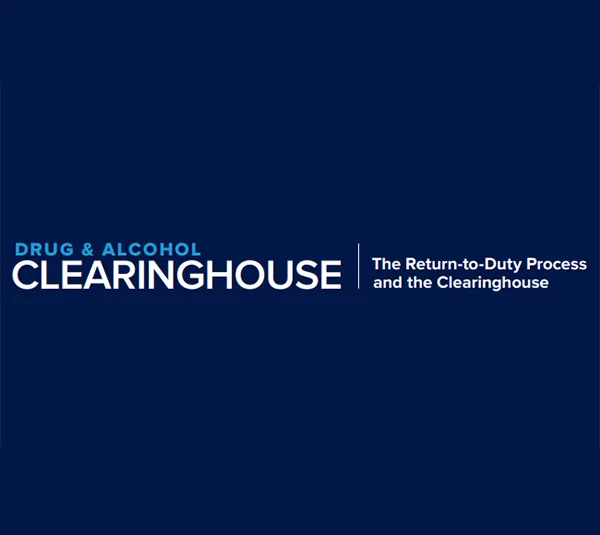Greetings from our SAP and Return-To-Duty (RTD) services. Our goal is to support you in maintaining a drug-free, safe workplace. RTD services are critical for workers who may have broken drug and alcohol laws, particularly those in regulated industries. Throughout the RTD process, our Edmonton Substance Abuse Professional (SAP) services provide essential assistance and direction. We are committed to providing a safe, drug-free workplace for each employee so they can safely resume their work. People may reclaim their position in the workforce and ensure everyone’s safety with our help.

The main goal of the return-to-duty process is to guarantee a drug-free, safe workplace. That’s crucial for people working in industries that are regulated or in positions where safety is a concern. Employees in regulated and non-regulated businesses who may have violated workplace drug and alcohol policies can access RTD services.
The SAP return-to-duty process is a crucial component in helping employees overcome addiction and securely reenter the workforce. Expert SAP services (Substance Abuse Professionals) are available in Edmonton to provide the guidance and support needed for a drug test before being allowed to return to work. All employees should have access to a drug-free, safe workplace, according to the services’ objectives.
Employers can safeguard the health and safety of their workforce while individuals can resume their careers by providing the appropriate support and according to the return to duty process. Everyone who is involved benefits from it.
At our Return-to-Duty and SAP (Substance Abuse Professional) Services branch, Bharat Sharma is a renowned therapist. He is committed to helping people overcome substance misuse disorders and ensuring a smooth return to their tasks, having a wealth of experience in both fields.
Bharat Sharma contributes a special mix of knowledge and empathy to our SAP and Return-to-Duty services. He is aware of the complex difficulties that come with substance usage and how it affects one’s career. His method is based on providing a safe, accepting environment where clients may talk about their challenges and work toward change.
Bharat Sharma’s commitment to excellence and proficiency in SAP and Return-to-Duty services are crucial in assisting people in taking back control of their lives and professions. Bharat Sharma is available to assist you in your quest for a knowledgeable and kind practitioner in these fields so that you can heal and resume your responsibilities.


Knowing when to submit to a drug test in order to resume work is crucial for both employers and employees. These tests are typically necessary when someone has struggled with substance abuse in the past and wishes to return to employment that needs close attention to safety, especially in compliance with Department of Transportation (DOT) regulations.
Here are some situations when RTD tests should be considered:
After Substance Abuse Treatment: RTD tests are necessary to make sure that an employee is no longer using drugs or alcohol if they have finished a substance abuse treatment program and are prepared to return to the workforce.
DOT Requirements: Following a drug or alcohol violation, RTD testing is required for jobs covered by DOT requirements. This makes it easier to confirm the person’s sobriety and suitability for jobs involving danger.
Company Policy: Certain employers might have regulations requiring RTD testing after any event or if there is a suspicion of substance misuse.
Random Testing: Random testing may be a standard component of employment in occupations where safety is a concern. RTD tests are required if an employee fails a random test in order to demonstrate their sobriety.
In these circumstances, taking RTD testing into account guarantees a more responsible and safe return to work, safeguarding the worker and their coworkers.
For many businesses, the pre-employment drug and alcohol test is an essential part of the hiring procedure. It entails checking for drug or alcohol use in job applicants prior to hiring them. This is the reason it matters:
Safety Assurance: Companies wish to guarantee a secure work environment. Testing assists in identifying possible drug usage problems that can endanger the safety of the worker or their coworkers.
Productivity Enhancement: A drug-free workplace often has higher productivity levels. Workers who are not under the effects of alcohol or drugs are better able to concentrate, which improves performance.
Legal Compliance: Pre-employment testing is mandated by law in some businesses, such as those governed by Department of Transportation (DOT) standards. Adhering to these guidelines assists businesses in avoiding legal problems.
Reduced Employment Turnover: Employers who use testing to identify and assist prospective workers with substance abuse issues can see a decrease in attrition rates because they can provide support and treatment instead of outright rejection.
Pre-employment drug and alcohol testing is a proactive step that supports the success of your organization by fostering a safer, more productive, and compliant work environment.


The following are typical reasons for failing DOT drug tests:
Illegal Drug Use: The use of illegal substances is the most obvious cause of failure. This covers substances, including opiates, cocaine, amphetamines, and marijuana.
Prescription Medications: Prescription medications may appear in drug tests and provide positive results. It is imperative that workers inform their employers of any prescription drugs they take.
Lack of Awareness: It’s possible that some workers are unaware of the DOT’s stringent drug-use policies and inadvertently take drugs that are prohibited.
Mistakes in Documentation: An incorrect or lacking set of instructions may cause a test to fail. Accurate information is essential to avoid mistakes.
Over-the-counter Medications: Numerous over-the-counter medications can also result in positive test results. Employees need to be aware of the substances in these medicines and use caution when using them.
Therapy and counseling services can be very beneficial in assisting people in resolving these underlying problems when substance abuse or pharmaceutical misuse is involved. Our professional therapist is here to help you take the first step by providing you with the appropriate guidance and support.
The goal of our professional therapist’s return-to-duty program is to help those who have battled drug abuse problems resume their professional lives. This is the way it functions:
Assessment: A comprehensive assessment is the first step in the procedure. Our therapist will assess your condition, go over your past medical records, and determine whether you’re ready to go back to work.
Tailored Strategy: A customized strategy is designed to cater to your individual requirements. Depending on your particular situation, this can entail receiving further therapy, counseling, or assistance.
Documentation: Our therapist makes sure that all required documentation and assessments for jobs covered by the Department of Transportation (DOT) adhere to DOT requirements.
Regular Check-Ins: Our therapist will do routine check-ins along the sap return to duty process to assess your progress and handle any worries or difficulties you might have.
Return to Work: After completing the required actions and receiving approval from our therapist, you can safely resume your professional responsibilities with the knowledge that you have the resources and assistance required to uphold a drug-free and healthy lifestyle.
Our dedicated therapist provides you with competent and compassionate guidance during this sap return to duty process. Our therapist emphasizes your long-term healing and well-being while facilitating a smooth transition back to work.


At Edmonton Counseling Services, we recognize how important convenience is when looking for advice and assistance. Because of this, we provide both online and in-person evaluations. So, you can utilize our services in any way that is most comfortable for you.
Our dedication to providing these choices stems from our belief. Everyone should have simple access to the assistance they need. We are willing to fulfill your choices. Whether they involve the intimacy and flexibility of in-person appointments or the flexibility and privacy of virtual tests.
Our goal is to provide you with the most comfort and accessibility on your path to recovery and well-being. Whichever evaluation option you decide on, our committed, qualified therapist is here to help. Our first concern is for you, and we are available to assist you both in person and virtually at every stage. This is where your journey to a happier, healthier life begins.

Copyright © 2024 Edmonton Counselling Services